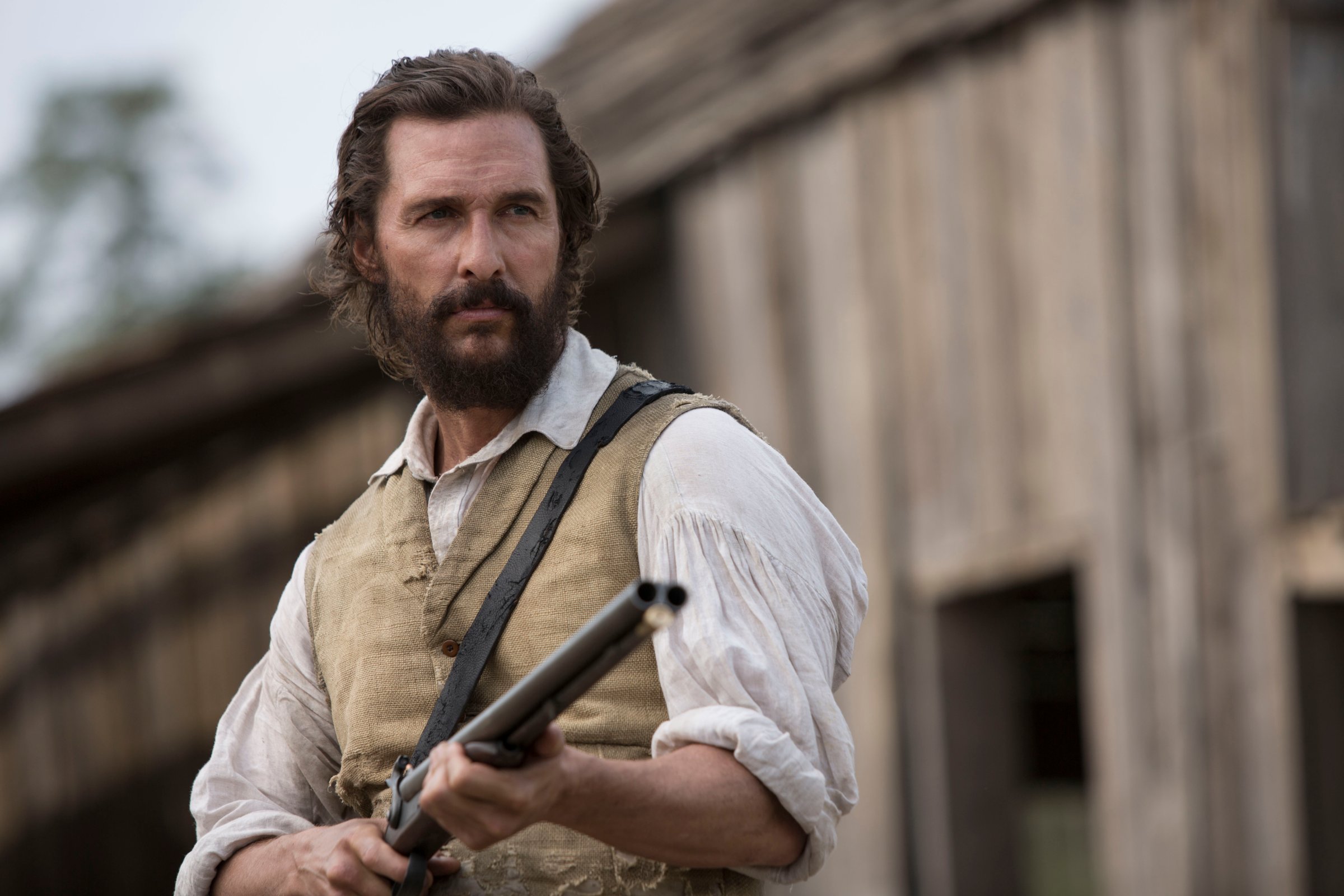
Although Gary Ross’ Free State of Jones is based on fact and on a real-life figure—Newton Knight, a poor white Mississippi farmer who fought in the Civil War, only to desert the Confederate army to become the leader of a group of Union loyalists—it often has the vibe of a tall tale, a campfire story modeled around a folk hero. That’s not necessarily a liability: The picture is exhilarating in places, thanks largely to the rawboned charisma of its star, Matthew McConaughey, as Knight, and a dignified supporting performance by Gugu Mbatha-Raw, as his second, common-law wife, Rachel.
But Free State of Jones is something of a messy sprawl: Whole swaths of it seem completely, sometimes horrifyingly, believable. Other sections may be historically correct, but also arrive on-screen feeling lifeless and flat. And while all movies about history have to be fictionalized to an extent, some aspects of Knight’s story, as Ross portrays them (he also wrote the script), seem too smoothed-out to be true. This is an earnest picture, and often a thoughtful one—though a thoughtful movie isn’t always the same as one that provokes thought.
The opening sequence, set in Jones County, Mississippi, in the early 1860s, has a horrifying majesty. Ross shows us a Confederate army unit trudging to battle, and we can hear how heavy their footsteps are: These are men whose limbs, and probably their hearts, have become leaden with exhaustion, and their Union opponents pick them off easily. The soldiers at the front stumble and drop as they’re hit; those behind them trundle forward, blood-splattered and almost zombielike, without missing a beat. This sequence is terrible to behold, and studiously staged and shot. (The cinematographer is Benôit Delhomme, whose work here is handsome without looking sterile.) What comes next is not wholly surprising but still wrenching: Knight, a soldier who’s also working as a nurse, worn down from tending to wounded and dying men, is sought out by a young relative (Jacob Lofland, of Mud) who’s been dragged away from his family’s farm and forced to enlist. Knight does what he can to protect this tender young solder, but his disillusionment both with the war and the Confederacy has already calcified. He deserts and, after making a stop to see his wife Serena (Keri Russell) and son, he flees into the local swamplands, where he’s helped by a group of runaway slaves, led by Moses (Mahershala Ali), whose neck is encircled by a spiked iron collar.
Knight’s life is saved by these men, and by Mbatha-Raw’s Rachel, the house-servant slave of one of Knight’s friends, who brings supplies as needed. He, in turn, helps them—the early swamp scenes have an eerie, idyllic beauty, though it’s always clear that these escaped men, particularly the slaves, are in grave danger. The small band enlarges as other deserters join. They’re fed up not just with fighting but with the Confederacy’s greed—its henchmen regular swoop down on their farms to commandeer their already meager stockpiles food and grain. Knight becomes their leader, arming them and urging them to stand up for their rights. The group gathers momentum, pushing back against the Confederate major who’s driven to capture them, Amos McLamore (Thomas Francis Murphy). The fighting is brutal, a grisly emblem of Knight’s willingness to kick back against everything he, as a Southerner, has been raised to believe.
There’s lots more, and it’s possible that Ross tried to pack too much in: The final section of Free State of Jones, which details Knight’s Reconstruction Era efforts to enforce the freed slaves’ right to vote, is fascinating, but the movie’s energy flags before it gets there. Occasionally, actors are asked to perform scenes that are almost impossible to pull off, as when Mbatha-Raw’s Rachel, at this point romantically involved with Knight, weeps at the sight of a feather bed in an abandoned plantation owner’s house. But Mbatha-Raw—who was terrific in Gina Prince-Bythewood’s superb 2014 pop-star drama Beyond the Lights—carries the moment gracefully. Through it all, Knight comes off as almost blamelessly noble and heroic, but McConaughey does allow flashes of complexity to shine through. The real-life Knight, according to historical accounts, was a scrappy fighter; in the movie, Knight commits an act of brutality that may be justifiable but is still unnerving, and McConaughey gives it the weight it deserves. His Knight also comes off, at times, as a little power mad: Whether that’s intentional or not, it makes sense that a fiery agitator like this could get high on his own heroic glow. It doesn’t hurt that McConaughey, with his hollowed, whiskery cheeks, has the face of a haunted Daguerreotype. That’s the spirit he brings to Free State of Jones: His decency is the weatherbeaten kind.
More Must-Reads from TIME
- Cybersecurity Experts Are Sounding the Alarm on DOGE
- Meet the 2025 Women of the Year
- The Harsh Truth About Disability Inclusion
- Why Do More Young Adults Have Cancer?
- Colman Domingo Leads With Radical Love
- How to Get Better at Doing Things Alone
- Michelle Zauner Stares Down the Darkness
Contact us at letters@time.com